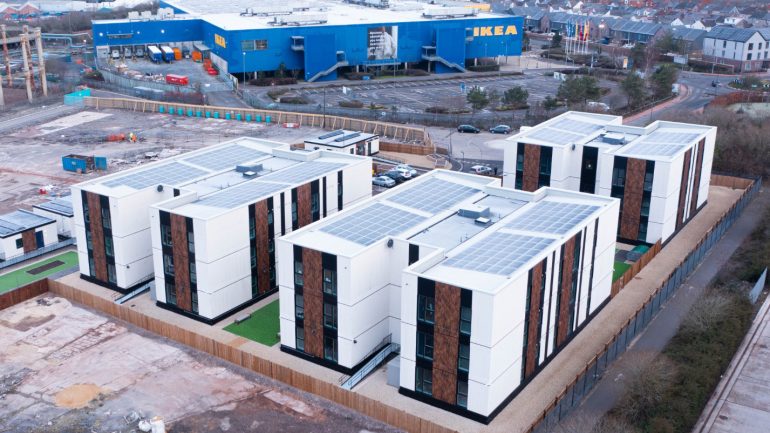Residents of the scheme can make use of a crèche, employment support and a training kitchen
A PIONEERING scheme providing temporary accommodation for homeless families in Cardiff will remain in Grangetown for five more years.
The 52 homes on the old gasworks site, next to IKEA, were completed in 2023 using emergency planning powers in response to the homelessness crisis in the city.
They are made from modular units which can be easily dismantled and relocated according to housing need – one of the first schemes of its kind in Cardiff.
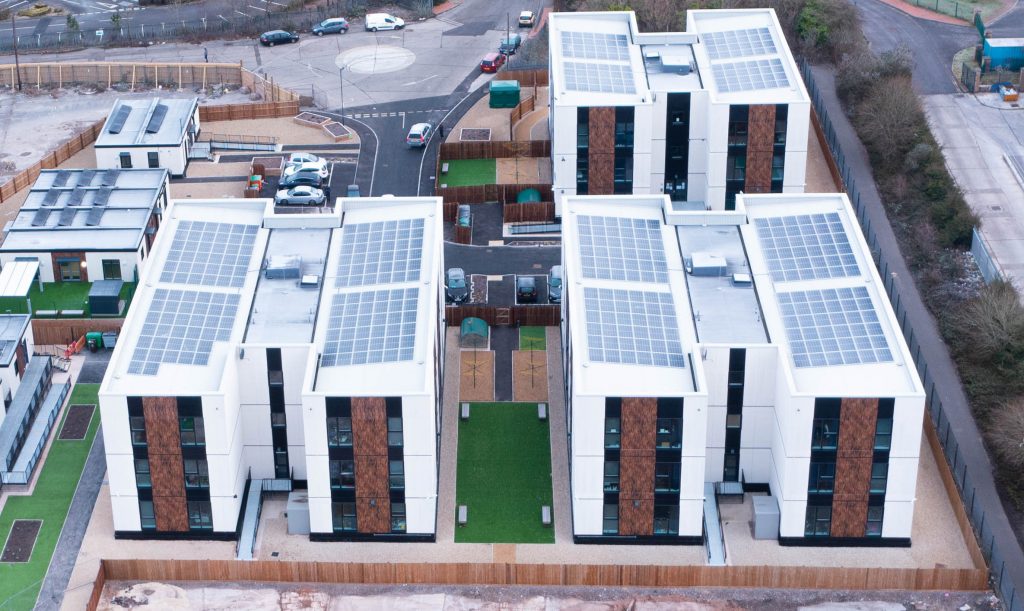
Plans were approved by the council on Thursday, March 13, to keep the homes in Grangetown for a further five-year period.
The estate is called Yr Hafan, meaning “haven” in Welsh. It is made up of homes of one to three beds for families with complex needs who are waiting for permanent accommodation.
Families have access to two community centres offering a crèche, employment support and a kitchen where residents can learn cooking skills.
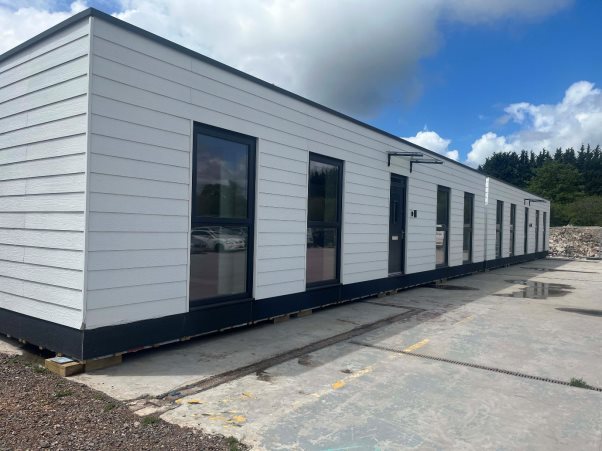
“The staff are amazing here. They know how to help a person,” said Zdravka, 23, who was seven months pregnant when she was evicted from her flat last autumn.
She spent a month living in a hotel with her mother and younger brother before getting a call to say there was a bungalow available on the estate.
“I will be forever grateful because I knew I was about to have a baby. I was excited to come. I’d heard about the place. It’s very nice and clean. Everything is good,” she said.
The family moved in December and have three spacious bedrooms, as well as a garden, which means she can live comfortably with her new baby. She says the staff “help with everything”.
“Two days before I was due to give birth our boiler wasn’t working. I called the guy and he was very worried. He was trying to move us to a four bed and get the boiler fixed as fast as possible. I will remember that,” she said.
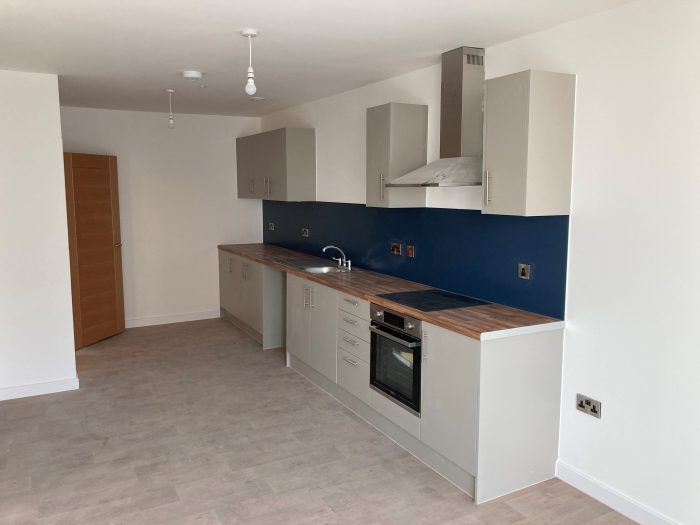
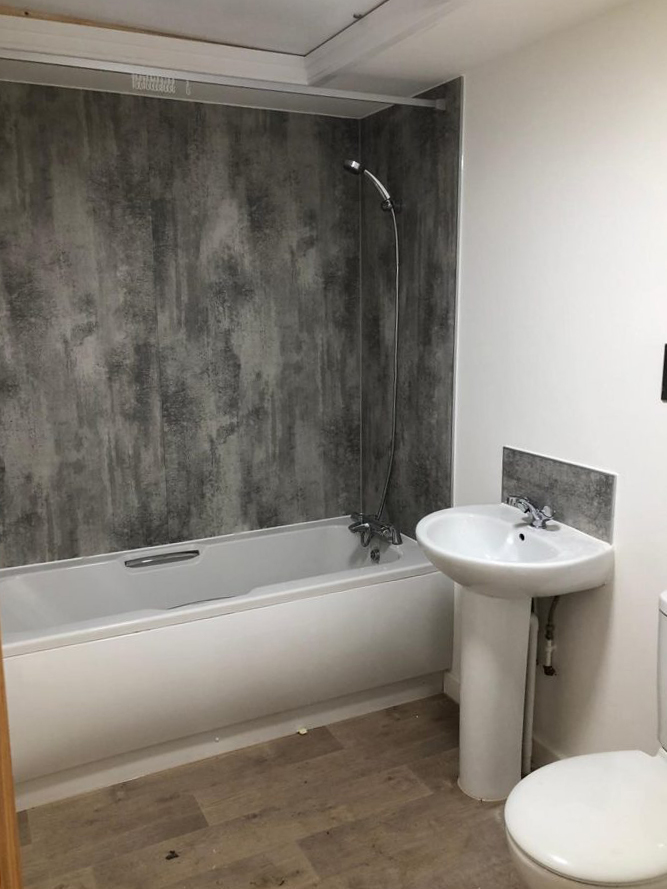
Problems with the private rental sector and cost-of-living pressures have led to a rise in the number of families becoming homeless. However, finding permanent housing for them is difficult.
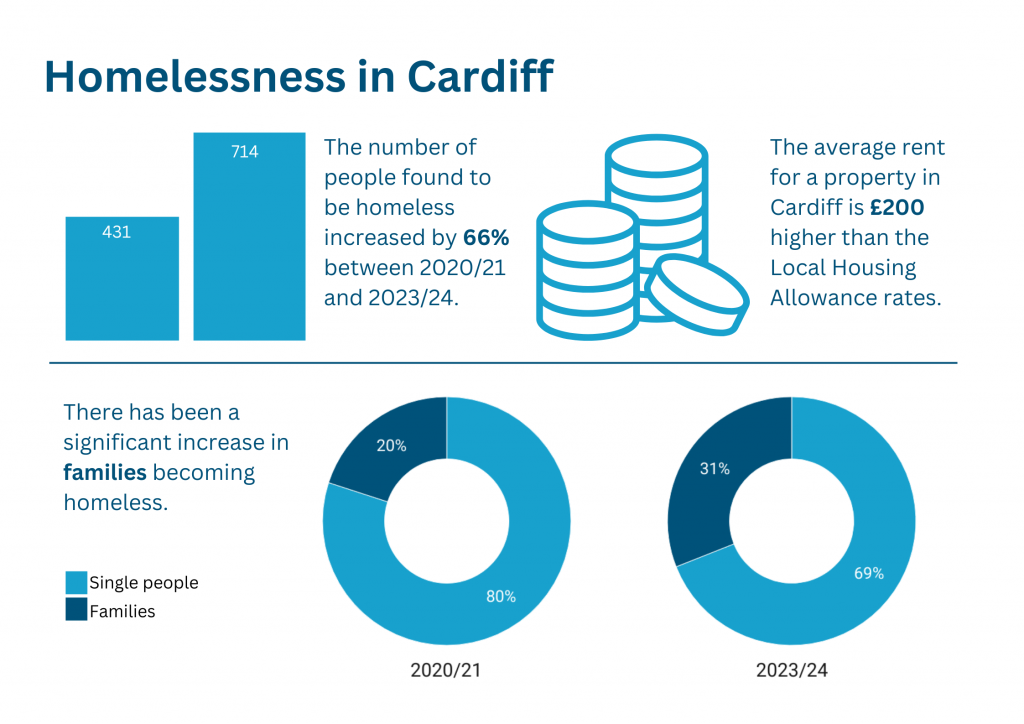
Grangetown Councillor and Cabinet Member for Housing and Communities, Lynda Thorne, says that only four to five properties suitable for larger families become available every year, meaning they can spend a long time in temporary accommodation.
“The scheme has been massively successful,” she said.
“Successful in being able to house people in good quality accommodation while they go through the homeless process, but also successful in trialling modular homes and how they stand up to everyday living, which they do.
“We’ve had visitors from all over the UK to see it. Because everyone is in this situation, we have to think differently to build homes for people who desperately need it.”
She said the scheme offers vital respite for people at a really difficult time in their lives. “It’s the quality of the accommodation. They are so quiet. When you shut the door you can’t hear a thing. For some people, particularly those who are going through the homelessness process, that quiet can help with their mental health.
“And it’s not just a roof over their heads, it’s all the support we can provide to help them move on with their lives,” she added.

However, the project has not come without its challenges. Last year, it was reported that the estate had been targeted by far-right groups, who were sharing videos suggesting the homes were being used to house refugees and asylum seekers.
“They’re not,” said Coun Thorne. “It’s all families. There are lots of families there who are from Grangetown.”
The former gasworks site has been identified as a key housing area in Cardiff Council’s Local Development Plan, and has been earmarked for 500 homes.
Given the success of the scheme, there have been some calls to make it a permanent site for temporary accommodation.
In the planning committee meeting, Councillor Sean Driscoll raised concerns about the future of the scheme after the five-year extension.
“That five years is going to go quickly, and the families who are living there have to go through the ‘are they going to renew it?’. They’re living with that worry all the time.
“We need to formalise it for the future,” he said.


